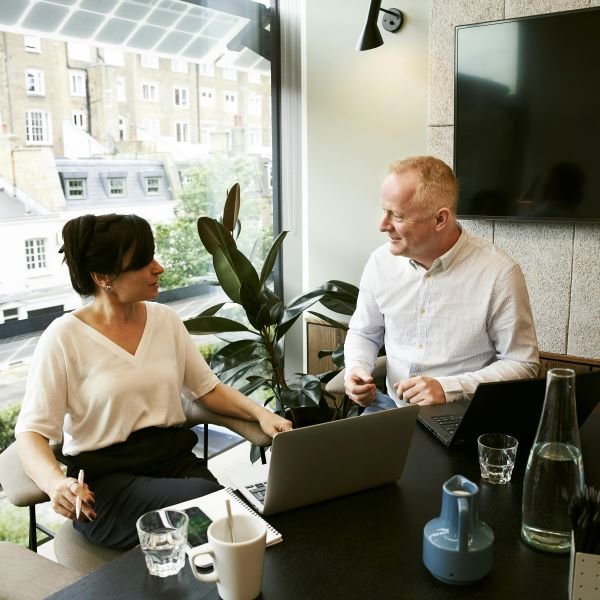Introduction
Expectations in relationships are like two sides of one coin; they can either bring people together or drive them apart. Every time individuals initiate romantic relationships, friendships or engage with their families they carry around certain unseen luggage which contains hope, fear, dream and supposition among others. Such expectations determine how we interact with others and react when reality does not follow our script. I used to think that lowering expectations was equivalent to accepting mediocrity – a compromise on my dreams in life. It wasn’t until later when some were not honored that I experienced real disappointment culminating into resentment. In actual sense, these anticipated outcomes may destroy relationships quietly if left unchecked.
This doesn’t equate to having low standards or being easily satisfied with anything less than you deserve – rather it’s all about seeing the thin line separating dreams from reality while being able move comfortably on both sides of that divide. Idealistic thinking tells us that true love shared equally is possible but we also have to be realistic since individuals have different personalities including strengths/weaknesses which affect relationships too much at times for them work out perfectly well most especially if there is no effort made towards achieving common goals together as partners or friends/family members regardless whether they like it or not!
Over time I came across this interesting fact; such a balance is vital not only for sustaining relationships but also key to maintaining good mental as well as emotional health. In this article let us look at ways of dealing properly with these anticipations so that one can keep both feet on ground while dreaming big!
Table of Contents
Understanding Where Expectations Come From
Our expectations don’t just magically appear. They come from things like how we grew up, things we’ve seen before, what the media shows us and even the culture we live in. I grew up watching rom-coms where love seemed easy and big romantic gestures happened all the time. That definitely shaped what I thought relationships “should” be like back then. But getting older helped me see that those movies weren’t real life, real relationships take way more emotional effort and work from both people.
Thinking about what you bring to a relationship and why is really key. Are you expecting your partner to handle every single emotional thing? Do you think they have to act certain ways because that’s what movies showed or past relationships taught? I’ve had my own stuff to unlearn beliefs that just weren’t working out for me or my relationships. When I really looked at where my expectations came from I could figure out which ones made sense and which were unrealistic. It opened up space for me to grow and for my relationships too it gave me a kinder view of the people I care about.

The Danger of Idealizing Your Partner
In those early days it’s simple to put someone up high, particularly when everything feels so new. I’ve found myself there believing someone was just perfect because that’s what I wanted. I got infatuation mixed up with really understanding them and painted this picture of who I thought they were rather than seeing the real person. The issue with idealizing people is it gets us ready for feeling let down. Nobody can be that perfect image all the time and when things go back to normal, it might even feel like a betrayal even though your partner didn’t actually change.
Moving away from idealizing someone doesn’t mean you care less; it means you’re loving them in a more genuine way. When I began seeing my partner as a complete person – with flaws, quirks and everything – I actually felt a deeper connection. It feels freeing to quit expecting perfection and start valuing presence effort and honesty. This helped us create a link based on how things really are not some fantasy. And that type of connection is much more durable long term because it’s grounded in truth not just an illusion.
Setting and Communicating Healthy Expectations
A key takeaway for me has been that expectations left unsaid are often expectations not met. Partners can’t possibly read our minds, right? For anything that matters deeply, it’s really our job to speak up. I once believed that real love meant someone would “just understand.” But oh, that thinking caused so much extra pain for everyone involved. It wasn’t right for either party.
These days, I strive to keep lines wide open talking about my needs and what I’m hoping for and I definitely encourage my partner to share theirs too. This type of talking really fosters mutual understanding and lets us make changes as we go along. It’s not about seeking some kind of flawless performance—it’s more about crafting a relationship space where both individuals feel truly seen heard and treated with respect. Looking back I’ve discovered that open clear communication helps lessen tension and makes the bedrock of trust stronger, which all good relationships need.

Learning to Compromise Without Losing Yourself
Compromise is just so key in relationships you know? But it took me a bit to figure out it doesn’t mean you lose yourself. I used to think, okay making things work means I bend to their way. I really didn’t want fights so I’d keep quiet about my needs. But that just caused upset and feeling lost. Eventually, I got it – true compromise is really working together not just giving in.
Healthy compromise is all about finding that middle spot where both people feel heard. It’s this conversation: “This is important for you and this for me—how do we find a way?” When you tackle it with real respect compromise isn’t weak its actually how you connect more. It’s helped me keep me while being really committed too. Learning how to handle differences constructively has become one of the most useful relationship skills I’ve developed.
Managing Disappointment Gracefully
Regardless of how effectively we communicate or how much we try to be realistic, disappointment is something that will always happen. Individuals will fail us and we also have our own shortcomings towards them. The main issue is not the disappointment itself but rather how we react to it. I have discovered that the solution lies not in preventing disappointment but in understanding how to deal with it so that it does not ruin the relationship. Although blaming others may seem like an easy way out, I have come to realize that one should take time to think, reflect and breathe through the pain.
In those moments when I feel disappointed, I attempt to handle the issue with curiosity rather than accusation. Was my expectation reasonable? Did we just misunderstand each other? By adopting this attitude, I have been able to pass through difficult times more smoothly and with fewer arguments. If managed correctly, disappointment may present a chance for greater insight and personal development. Many honest and therapeutic discussions followed instances where I felt betrayed yet remained receptive instead of being defensive.
Recognizing Your Partner’s Humanity
At the day’s close our partners are simply people—imperfect complex and wonderfully flawed. Accepting this has been one of the truly freeing parts of my relationship path. It’s let me release the burden for perfection everywhere and instead welcome the genuine messy beautiful essence of love. Relationships aren’t fairy tales; they are living breathing connections needing effort understanding and patience.
When I quit expecting perfection, I began noticing the small significant ways my partner was there. A thoughtful act a shared laugh a moment of openness—these things built the base of our connection. Recognizing our common humanity has made my compassion deeper and made me a better partner too. It’s shown me that love isn’t flawless execution; it’s about real connection forgiveness and being ready to learn grow side by side.

Balancing Hope and Acceptance
Hope really is a big thing in relationships. It keeps us working towards better things believing people can grow and putting effort into the future. But if you’re not careful this hope can turn into expectations that aren’t real. I’ve found that mixing hope with acceptance is key to keeping your feet on the ground. Acceptance doesn’t mean stopping trying; it just means seeing things as they are but staying open to changes.
Finding this balance is about knowing where things are now but still leaving room for what might be. It’s about loving your partner for who they are today not just the idea of who they could become. Looking at it this way helps me be present in my relationship while still encouraging those shared dreams and how we can evolve together. Hope gets healthier when you combine it with what’s real and that mix creates a place where love can flourish.
Growing Together Through Honest Reflection
Every relationship is a sort of journey right, for growth both on your own and together. One really powerful tool I’ve come across is regular honest reflection. Taking time to figure out what’s going well what isn’t and how your expectations change keeps the relationship feeling dynamic and strong. Self-awareness paired with just being open can really help a couple get their emotional direction back.
My partner and I we try to check in regularly—not just when things are tense, but also when they’re good. We discuss what we appreciate where we feel like we’re reaching our limits and what we hope to build together. These chats have become a real source of strength helping us grow not just as people but as a team too. In reflecting together we manage to stay on the same page resolve those little tensions before they become big ones and keep our connection grounded in shared understanding.

Conclusion
Managing expectations is not about letting go of what you desire but rather understanding what is reasonable and kind in any partnership. Attaining this balance between idealism and practicality has helped me become a partner who is more down-to-earth and understanding. It is a challenging task but one that always yields positive results. There will be instances where partners feel disconnected or frustrated but with effort and concern, expectations can serve as a link rather than a source of conflict.
When individuals approach relationships with both eyes and heart wide open they create an environment conducive to actual love flourishing. They cease striving for an idealized state and concentrate on forming connections. In such a setting, genuine closeness can blossom. Relationships grounded in realistic anticipation are more likely to endure long term challenges survive difficult periods and rejoice in happy times. Essentially, managing expectations is not merely a relationship technique—it is also a valuable life skill.
FAQs
Q1: How can I tell if I’m expecting too much?
A1: Consider whether your expectations are based in reality or fantasy. Do they fit with who your partner really is or who you’d like them to be? Think also about if you could live up to the same standards yourself.
Q2: What is the most effective method of discussing expectations with a partner?
A2: Opt for a serene occasion and articulate from your own perspective. Utilize “I” statements for expressing what you require and why its significance is personal to you. Be sure to listen attentively offering the kind of openness you seek in return.
Q3: Is it possible for expectations to benefit a relationship?
A3: Absolutely. Expectations that are clear and healthy can provide the groundwork for shared respect trust and personal growth as long as there’s communication and flexibility about them. These expectations assist in making boundaries explicit so both people understand the agreement.
Q4: What should I do when my partner fails to meet my expectations on a regular basis?
A4: You should consider if your expectations are reasonable and if your partner has expressed willingness to change and grow. When someone does not meet your expectations this may uncover larger issues such as fundamental incompatibility requiring an honest conversation. It might also provide an opening to talk again about what truly matters most to both individuals in the partnership.



